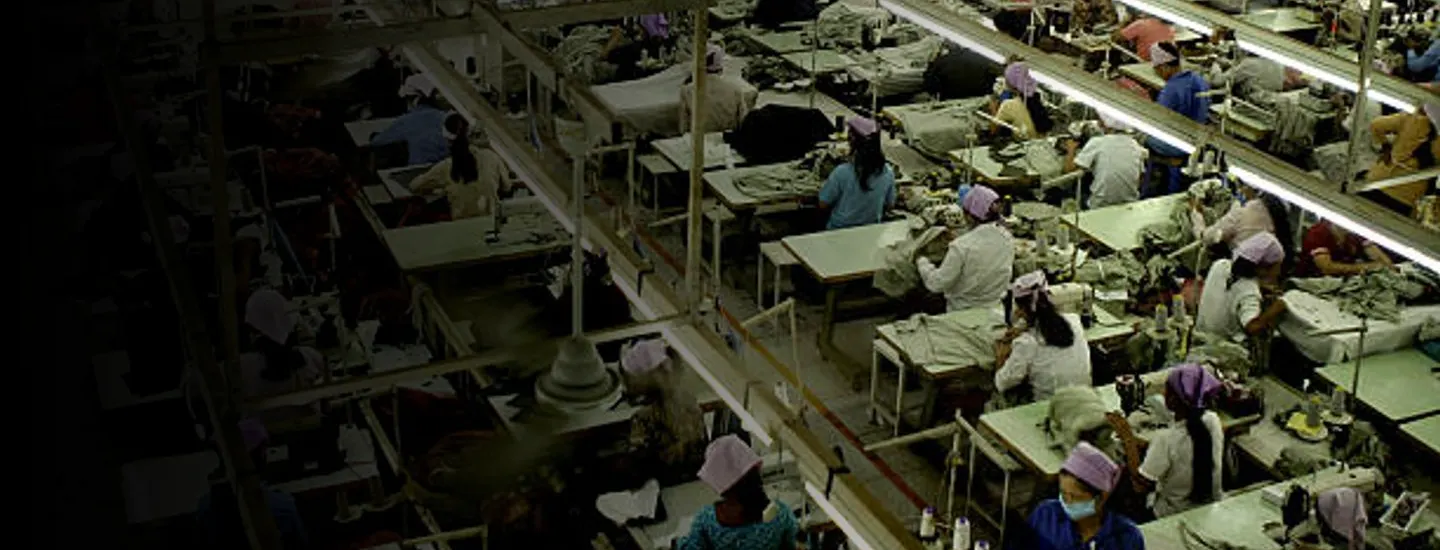The Social pillar of ESG is becoming increasingly relevant for companies, centred around human rights, health and safety, diversity, fair compensation and (local) community impacts. At least with the latest regulatory framework initiatives, simply taking care of your own workforce is no longer sufficient. The entire value chain is what really matters.
As with the environmental aspect of ESG, companies are experiencing pressure from multiple stakeholders – predominantly consumers and regulators. Both upstream and downstream societal impacts should be considered by organisations. Indeed, it would be remiss to ignore potential downstream challenges. Technology company DJI is one example. DJI is facing social challenges over the potentially controversial use of its products in the Russia-Ukraine war, highlighting that commercial products aren’t always used as they are intended, and this can have grave results. In this article, however, we will focus on the upstream supply chain.
Consumer sentiment is shifting, but may not move the needle
Customers are, of course, a critical group; public opinion regarding social standards across industries, products and behaviours is growing more vocal and inextricably tied to business performance.
Consumer sentiment can also be slower to take effect. For example, the market volume of Fairtrade products grew to 2.1 billion EUR in 2021 in Germany, compared to 1.1 billion EUR five years prior. Almost 25% of this resulted from coffee sales. However, despite the promising growth in Fairtrade, it still only represents less than 10% of the total coffee sold.
Or, at the other end of the spectrum, initial ‘uproar’ can prove to have limited, if any, lasting impact. The 2022 football World Cup in Qatar is another example of heightened human rights discussions coming to the fore. While heavy debates dominated the media in the lead up to and during the tournament, high-profile criticism has calmed since the final, which was watched by more than 1.5 billion people worldwide.
Similarly, in the electronics supply chain, where products from controversial manufacturers are present in so many of the devices we use every day – smartphones, laptops, electric vehicles – there have been long-standing views regarding some organisations’ poor labour safety and human rights violations. And yet, has this altered our usage of these ‘tools’?
Regulatory pressure is intensifying - now
A regulatory corrective is essential to uphold social standards throughout supply chains, beyond the growing pressure from consumers.
Across Europe, the Corporate Sustainability Reporting Directive (CSRD), applicable from 2024, will greatly enhance what its precursor, the non-financial reporting directive (NFRD), attempted to enforce by more stringent reporting requirements and comparability between organisations.
Before CSRD, however, is the LkSG.
In Germany, the Lieferkettenschutzgesetz (or German Supply Chain Due Diligence Act, LkSG) became effective on 1 January 2023. This new regulation aims to minimise human rights-related risks in the global value chains of sites located in Germany and environment-related risks (globally) if they imply a risk on health or human rights.
Firms with more than 3,000 employees in Germany (becoming more stringent in future years), independent of headquarters location or registered office, are subject to LkSG. It is the first time that the full supply chain is in scope.
Organisations now have added potential accountability throughout all manufacturing stages and with all involved parties, from raw materials through to the end consumer. Companies carry a duty of care mainly for their own operations and Tier-1 suppliers but with additional potential liability for Tier-2 suppliers and below with regard to transparency, which must be ensured through a whistle-blower system where access to third parties must be granted.
The effectiveness of the new law is starting to show with the recent accusations by the European Center for Constitutional and Human Rights against German Auto OEMs (Volkswagen, BMW, Mercedes-Benz) for the alleged use of forced labour in the Xinjiang region in China. Other organisations should take heed and urgently look to ensure their own supply chains are transparent and conducting the appropriate due diligence: this may only be the tip of the iceberg as many products that we use today have some element that is sourced from Xinjiang region.
The penalties for non-compliance could be significant, with individuals such as managing directors and compliance representatives potentially facing fines of up to 800,000 EUR, while company entities could be fined up to 2% of their average annual turnover and/or excluded from future public tenders. If this approach proves not fruitful enough, the worst-case scenario for European companies could be a complete ban on imported products as is already the case for products imported from certain regions into the US.
Immediate implications for companies
There is little doubt that companies must increase their activity in this area now, as compliance amongst Tier-1 suppliers will no longer be sufficient and appear too short-sighted given the increasing depth of scrutiny. Indeed, for many industries and organisations, it is a matter of when, not if, skeletons may be drawn out of the closet. An in-depth study by Sheffield Hallam University has drawn potential links to almost every automotive OEM and forced labour.
However, at this stage it is still unclear whether LkSG, CSRD or other regulations will have the intended effect: to force companies to make long-lasting and long-reaching changes to their supply chain. The Sheffield Hallam University report was released over six months ago now; the abovementioned German carmaker accusations are the first we are seeing of potential implications, but we are yet to see how they are resolved. Will similar risks and issues that arise through reporting on LkSG and CSRD be ‘brushed under the rug’, or will they be instrumental in driving the change that is needed?
Setting new standards for Social
High performance in "S" is not achieved by simply being compliant.
There is room for additional value creation approaches, both in risk avoidance and in the creation of new opportunities. Safety aspects, both in manufacturing plants and during product usage, can lower the probability of potential negative impacts and provide opportunities for increased uptime, with fewer disruptions due to violations, accidents at the company's facilities, and those of its suppliers. Higher safety standards all the way through to the customer’s usage of the product will also lower the probability of recalls – a significant cost driver.
Building a positive reputation for the highest standards in "S" in the supply chain may bring other advantages, especially from a workforce engagement and talent retention perspective. WeSpire’s 2021 State of Employee Engagement report outlined that 93% of “employees that strongly believe their company is making a positive impact” are likely to remain in their current company and role. Companies that adopt and promote ethical supply chain practices can leverage this as a key selling point to current and future employees, differentiating themselves from competitors who are lagging behind in this area, and increasing the likelihood of attracting the top industry talent to their company.
The Social aspect of ESG now spans the entire supply chain and the pressure to act is intensifying – including the business-critical groups of customers, regulators, and the workforce talent that will take organisations forward for years to come.
The companies that proactively address these risks and integrate "S" standards into the way they do business will not only avoid potential financial penalties but also minimise their own impact on unethical practices and create enterprise value through risk reduction and the unlocking of new opportunities.
You can also read earlier articles from this series below:



